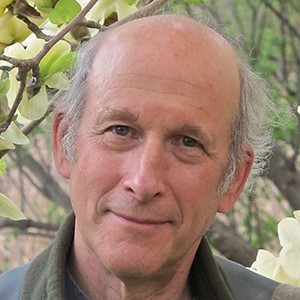Stefan G. Hofmann, a College of Arts & Sciences psychology professor who studies the mechanisms of cognitive behavioral therapy (CBT) and other psychological treatments for anxiety disorders and depression, has won an Alexander von Humboldt Foundation Research Award.
The award recognizes the lifetime contributions of academic scientists or scholars “whose fundamental discoveries, new theories, or insights have had a significant impact on their own discipline and who are expected to continue producing cutting-edge achievements in the future,” according to the foundation website.
“I am delighted and very honored,” says Hofmann, the director of the psychological and brain sciences department’s Psychotherapy and Emotion Research Laboratory. In addition to his research on the mechanism of CBT and other treatments, Hofmann focuses on translating discoveries from neuroscience into clinical techniques to improve therapies for anxiety disorders. He also studies the cultural expressions of mental disorders and how psychological treatments can be made more culturally sensitive.
Hofmann is the principal investigator on two National Institute of Mental Health grants—one on the use of d-cyloserine (DCS), an antibiotic used to treat tuberculosis, to augment CBT for social anxiety disorder, the other a study of yoga for generalized anxiety disorder. He is also principal investigator on a large James S. McDonnell Foundation grant.
A former president of the Association for Behavior and Cognitive Therapies and the International Association for Cognitive Psychotherapy, Hofmann is current editor-in-chief of the journal Cognitive Therapy and Research and associate editor of the journal Clinical Psychological Science. He is a fellow of the Association for Psychological Science, among many other organizations.
The von Humboldt award provides researchers with about $77,000 to spend a total of 12 months in Germany on a project they have developed together with a host scientist and collaborative partner. Hofmann says his project will focus on further understanding the psychological mechanisms through which CBT works. His host and collaborative partner is Paul Pauli, a professor of psychology at the University of Würzburg.
“Although cognitive behavioral therapy is a very effective treatment, there are still many unanswered questions about the precise mechanism through which it works,” says Hofmann. “Clarifying these questions can help us further improve our treatments.”
The Alexander von Humboldt Foundation was established by the German government to promote international academic cooperation between researchers from Germany and abroad. Born in Berlin in 1769, Alexander von Humboldt was a celebrated geographer, explorer, and naturalist.

















































Intrigued by connection between antibiotics and anxiety not only as a double master in psychology, but also a sufferer of anxiety. Can you please send link to study? Thank you so much- Lisa Knabe
Hi Lisa,
Thanks for writing. It’s probably best for you to ask Professor Hofmann directly. His contact information is here.
Best regards,
Cindy
Managing Editor